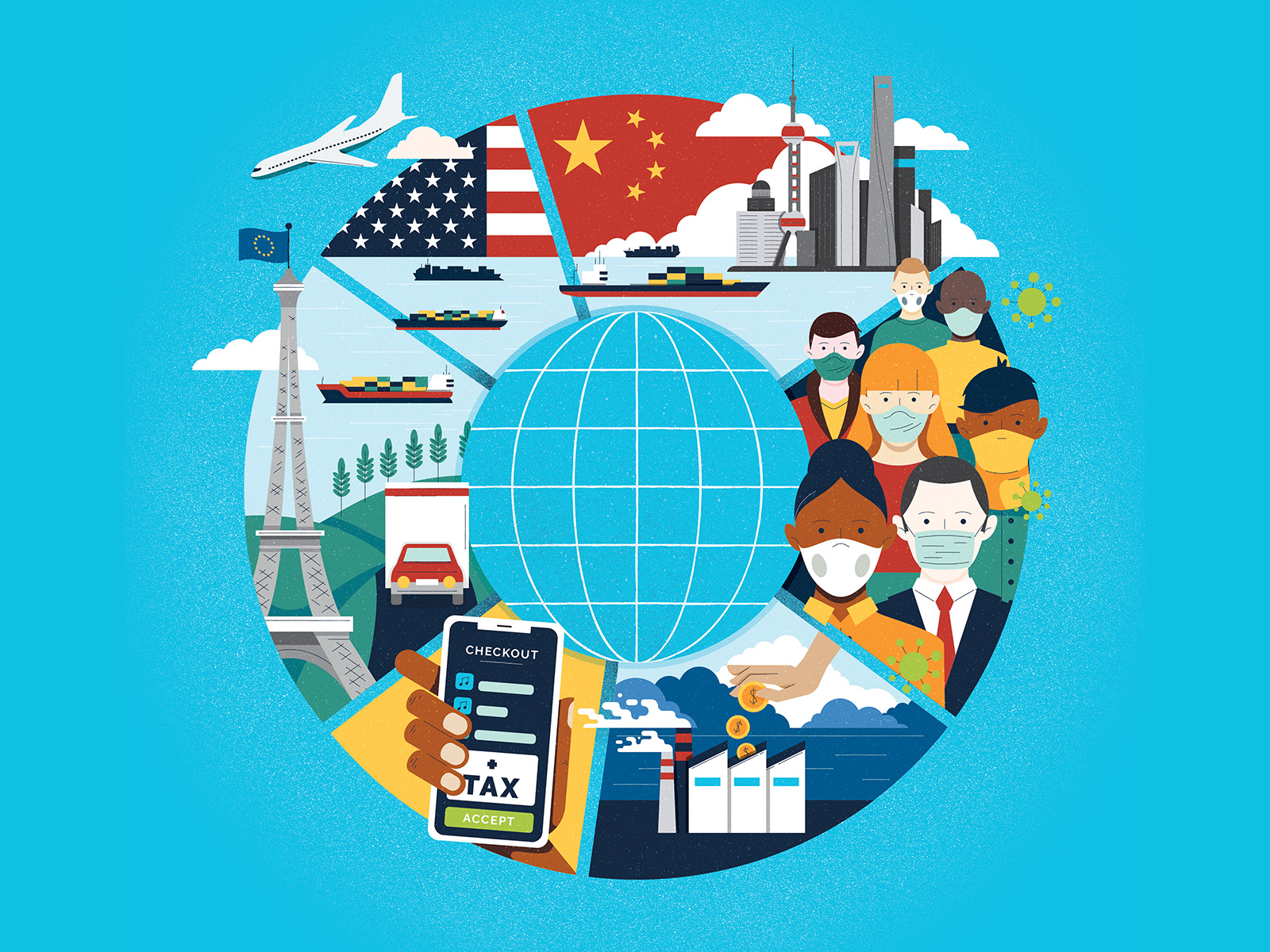Predicting the future of the world economy is highly complex and uncertain. Economic outcomes depend on a multitude of factors, including geopolitical events, technological advancements, government policies, global trends, and unforeseen events like pandemics. As of my last knowledge update in September 2021, I can provide some insights into potential scenarios that could impact the world economy:
 |
| image_processing20200729-19586-61wefk_4x.jpg (1600×1200) (dribbble.com) |
Global Economic Trends: Economic growth and development vary across countries and regions. The world economy may continue to evolve with shifts in economic power, with emerging economies playing a more significant role.
Technological Advances: Technology has the potential to disrupt traditional industries and create new opportunities. Advancements in automation, artificial intelligence, and renewable energy could reshape industries and labor markets.
Trade and Globalization: The future of globalization is uncertain, with trade tensions between major economies and the possibility of supply chain disruptions. The balance between protectionism and free trade policies will influence global economic stability.
Environmental Challenges: Climate change and environmental degradation pose significant risks to the world economy. Efforts to address these challenges, such as transitioning to a green economy, could have profound economic impacts.
Demographics: Aging populations in some countries can strain social safety nets and impact economic growth. Meanwhile, young and growing populations in other regions can provide opportunities for economic development.
Political and Geopolitical Factors: Political decisions and geopolitical tensions can have substantial economic consequences. Trade disputes, sanctions, and conflicts can disrupt global supply chains and financial markets.
Pandemics and Health Crises: Events like the COVID-19 pandemic can have sudden and severe economic impacts. Preparedness and response to health crises will be crucial in mitigating economic damage.
Monetary Policy: Central banks' policies, including interest rates and quantitative easing, can influence economic conditions. Inflation, deflation, and currency exchange rates are key considerations.
Fiscal Policies: Government spending, taxation, and fiscal policies play a critical role in economic stability. Decisions on budget allocations, stimulus packages, and public debt management can affect the economy.
Social and Cultural Factors: Societal changes, such as shifts in consumer preferences, workforce dynamics, and cultural norms, can influence economic trends.
Given the complexity and uncertainty of these factors, it's challenging to predict precisely how the world economy will evolve. Economic models and experts continually analyze data and trends to make informed forecasts, but they can still be subject to unexpected events and changes.
To stay informed about the state of the world economy and its potential future developments, it's essential to follow economic news and analysis from reputable sources and consult experts in the field.
Comments
Post a Comment